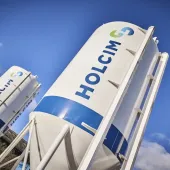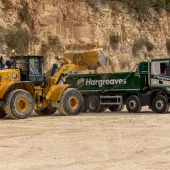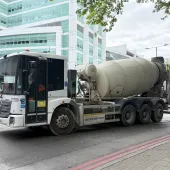How Aggregate Industries keep London Underground moving
Partnerships and expertise key to ensuring seamless operation of the underground network
OVER a span of six years, and with a possible two-year extension, Aggregate Industries have secured their contract with London Underground, marking a significant milestone in the supply of loose and bagged rail ballasts.
As the company enters its third year, it reflects on its pivotal role in ensuring the seamless operation of the underground network, all whilst delivering best value.
Contributing a total of 25,000 tonnes annually, the supplied ballast plays a crucial role in maintaining the efficiency of the entire underground network, which is responsible for helping 5 million commuters each day get to their desired location across 272 stations.
The ongoing £7 million project involves providing crushed rock to establish a level, stable, and robust base capable of withstanding extreme weight, thereby ensuring optimal network performance by keeping the tracks securely in place.
In response to the substantial volumes and weight loading of the ballast, the transportation of bagged materials to specific locations has undergone modifications, reducing from 25kg to 20kg. This adjustment, while aligning with rigorous specifications, enhances efficiency in the transportation process.
It is the intricate supply chain, however, which makes this project and process work seamlessly across the 250 miles of track.
The journey of the ballast commences as high-quality rock sourced from Glensanda, Europe’s largest granite quarry. After being picked and crushed at the quarry, the rock travels to the Isle of Grain in Kent for washing. Then, Day Aggregates handle the bagging process, and the finished high-quality ballast is transported to a hub in West Ruislip, where it is distributed to the underground network and then laid.

Throughout this intricate supply chain, the unsung heroes behind the scenes – those who ensure quality control and compliance – play a crucial role in ensuring the success of the entire process.
Daniel King, regional director of aggregates at Aggregate Industries, emphasised that with this project, success lies in the close collaboration with supply chain partners.
He commented: ‘Our success in handling projects like these, particularly with London Underground tenders, stems from a combination of technical prowess and an unyielding commitment to playing a pivotal role in the network. This dedication ensures the seamless progression of the project 24/7.
‘From the initial rock extraction at Glensanda in Scotland to the final ballast spread across London, time, speed, and efficiency are indispensable elements in this labour-intensive process.
‘Our ability to consistently deliver results hinges on the strength of our partnerships and without our trusted allies by our side, achieving the level of success we've attained to date would be an insurmountable challenge.
‘Our technical acumen and unwavering dedication, coupled with the support of our trusted partners, not only distinguishes us but positions us as the experts of choice for projects of this magnitude, ensuring continued success in securing and executing London Underground ballast delivery tenders.’
Hamilton Drane, commercial manager at Transport for London (TfL), added: ‘The primary reason for specifying Aggregate Industries 20kg rail ballasts was a drive from our material-handling team to reduce injury to staff manhandling heavy 25kg bags. The reduction from 25kg to 20kg was seen as a safety at work improvement with reduced risk of injury, as all bags are hand carried into the deep tube, and often the Victorian parts of the underground present further challenges with access via narrow tunnels.’










